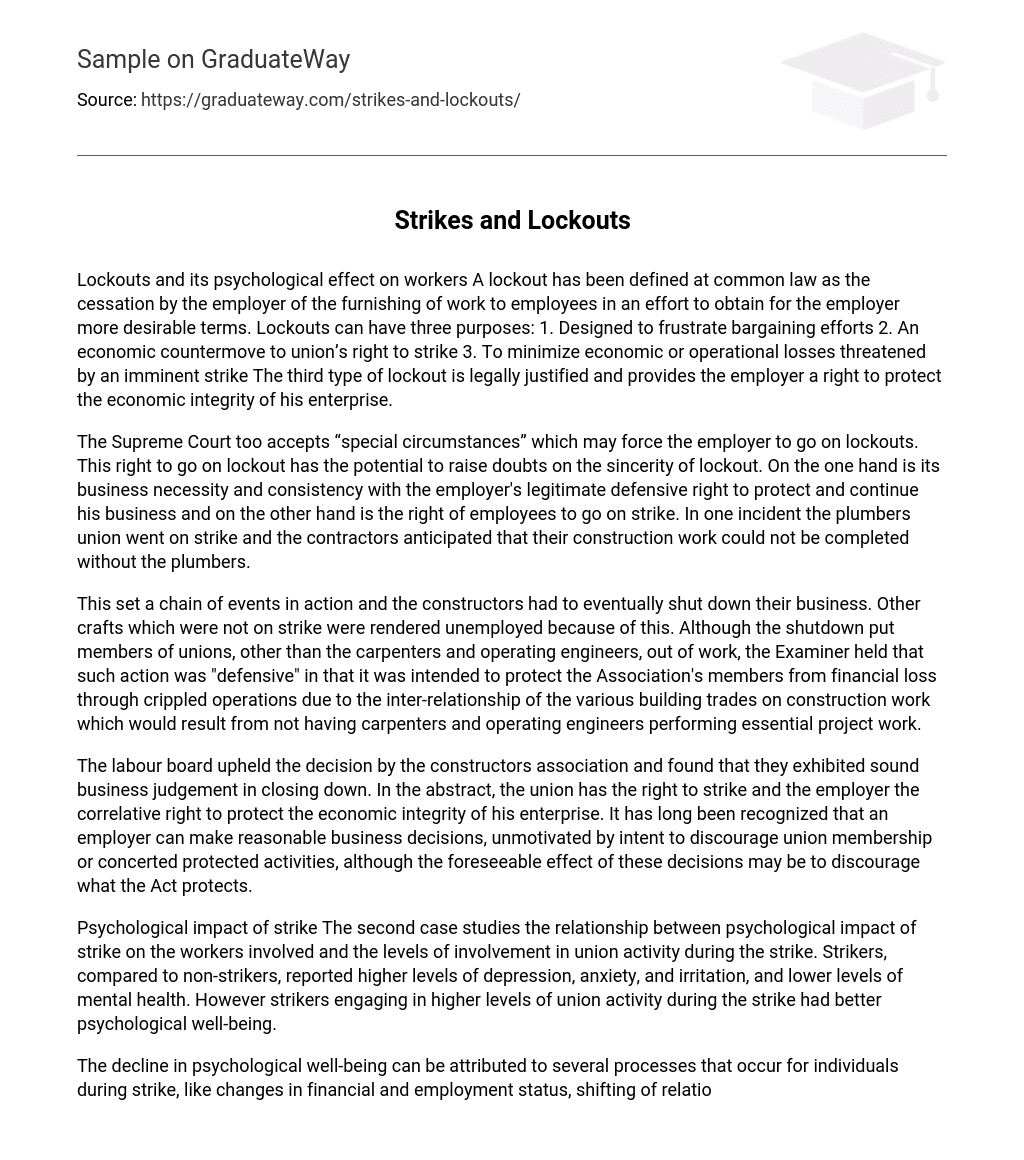Lockouts and its psychological effect on workers A lockout has been defined at common law as the cessation by the employer of the furnishing of work to employees in an effort to obtain for the employer more desirable terms. Lockouts can have three purposes: 1. Designed to frustrate bargaining efforts 2. An economic countermove to union’s right to strike 3. To minimize economic or operational losses threatened by an imminent strike The third type of lockout is legally justified and provides the employer a right to protect the economic integrity of his enterprise.
The Supreme Court too accepts “special circumstances” which may force the employer to go on lockouts. This right to go on lockout has the potential to raise doubts on the sincerity of lockout. On the one hand is its business necessity and consistency with the employer’s legitimate defensive right to protect and continue his business and on the other hand is the right of employees to go on strike. In one incident the plumbers union went on strike and the contractors anticipated that their construction work could not be completed without the plumbers.
This set a chain of events in action and the constructors had to eventually shut down their business. Other crafts which were not on strike were rendered unemployed because of this. Although the shutdown put members of unions, other than the carpenters and operating engineers, out of work, the Examiner held that such action was “defensive” in that it was intended to protect the Association’s members from financial loss through crippled operations due to the inter-relationship of the various building trades on construction work which would result from not having carpenters and operating engineers performing essential project work.
The labour board upheld the decision by the constructors association and found that they exhibited sound business judgement in closing down. In the abstract, the union has the right to strike and the employer the correlative right to protect the economic integrity of his enterprise. It has long been recognized that an employer can make reasonable business decisions, unmotivated by intent to discourage union membership or concerted protected activities, although the foreseeable effect of these decisions may be to discourage what the Act protects.
Psychological impact of strike The second case studies the relationship between psychological impact of strike on the workers involved and the levels of involvement in union activity during the strike. Strikers, compared to non-strikers, reported higher levels of depression, anxiety, and irritation, and lower levels of mental health. However strikers engaging in higher levels of union activity during the strike had better psychological well-being.
The decline in psychological well-being can be attributed to several processes that occur for individuals during strike, like changes in financial and employment status, shifting of relationships and roles, and uncertainty and unpredictability about outcomes. The situation is similar to under employment which too creates similar situations. People engaged in paid employment receive a “manifest” benefit and are also supported psychologically from five “latent” benefits of employment (a) Time structure on the day (b) Social contacts outside the nuclear family (c) Collective goals and purposes (d) Status and social identity e) Regular activity. People who lose their jobs or are underemployed are deprived of both manifest and latent benefits of employment, it is the deprivation of the latter that reduces psychological well-being. If workers on strike engage themselves in some other work which provides them structure for the day and social contracts they would have lower level of depression, anxiety, irritation and high mental health. However there was no significant difference between strikers and non-strikers in regard to marital quality, suggesting the acceptance of need for strike in the close knit society of the workers.





